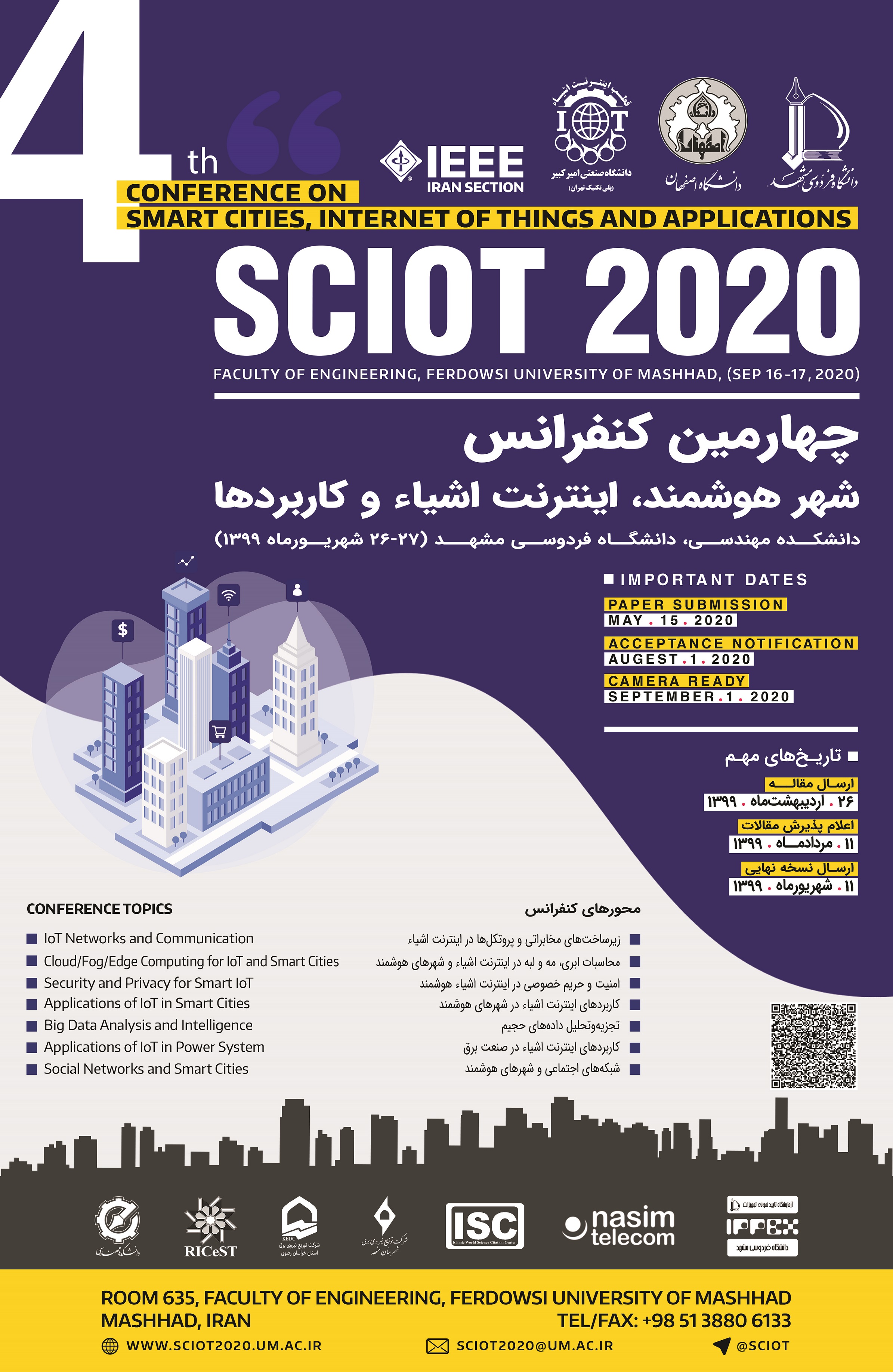|
Organizers
Conference Menu
Past Conferences
Useful Links
Languages
|
 |  | |
About ConferenceThe emergence and dramatic increase in the production and use of Internet connectivity devices such as smartphones, tablets and wearables gadgets in addition to the older generation of personal computers, laptops and other Internet connected devices, has enabled the provision of a wide range of services. In such circumstances and with the dramatic expansion of the Internet platform usage, the notion of a world in which in addition to connecting to other objects through network, every object can automatically operate, is not far from mind. We call this new concept Internet of Things, a concept by which a wide range of physical and logical objects are interconnected through it, enabling humans and machines to be able to easily and without spatial and temporal dependencies and tolerating overheads, access, control, and manage the information they produce. The Internet of Things refers to the objects and devices around us that are connected to the Internet and are controlled by applications on smartphones and tablets. It is predicted that by 2023, more than 75 billion devices will be connected to the Internet. So, as the technology evolves, more and more sensors, devices, and networks are created that can communicate with each other and their users. Internet of Things has various applications in various fields. One of the most important of these areas is the smart city. Smart City includes concepts such as smart buildings, intelligent traffic control, smart transportation, smart energy, smart parking, smart lighting, smart healthcare, smart farming and more. A city does not need to have all these components to be smart, and may only include some smart city services, given the costs and technologies available. In general, if smart cities become operational, they will reduce energy consumption, reduce carbon emissions, reduce municipal waste, and increase citizens' satisfaction with utilities. A smart city is where old networks and services can work more flexible, efficient, and effective with communicational, digital and informational technologies to serve citizens more better. Smart cities are greener, safer, faster and friendlier.
It is projected that by 2030, more than 60% of the population will live in cities. Therefore, information and communication technologies, government policies, and private companies play a major role in implementing smart city solutions, services, and applications. Meanwhile, IoT related patterns, play an important role in community and industry applications. Given the importance of smart cities and their role in satisfying more people and providing better services to citizens, and in view of the importance of IoT and its applications, Computer Engineering Department of Ferdowsi University of Mashhad, in collaboration with Isfahan University and IoT center of Amir Kabir University of Technology, will hold the 4th International Conference on Smart Cities, IoT and Applications on September 16-17, 2020 at the Faculty of Engineering of the Ferdowsi University of Mashhad. We hope to see this event successfully with the participation of students, researchers and the industry sector. | ||
 |  |
|
Important Dates
Conference Poster

Search Site
Login
|